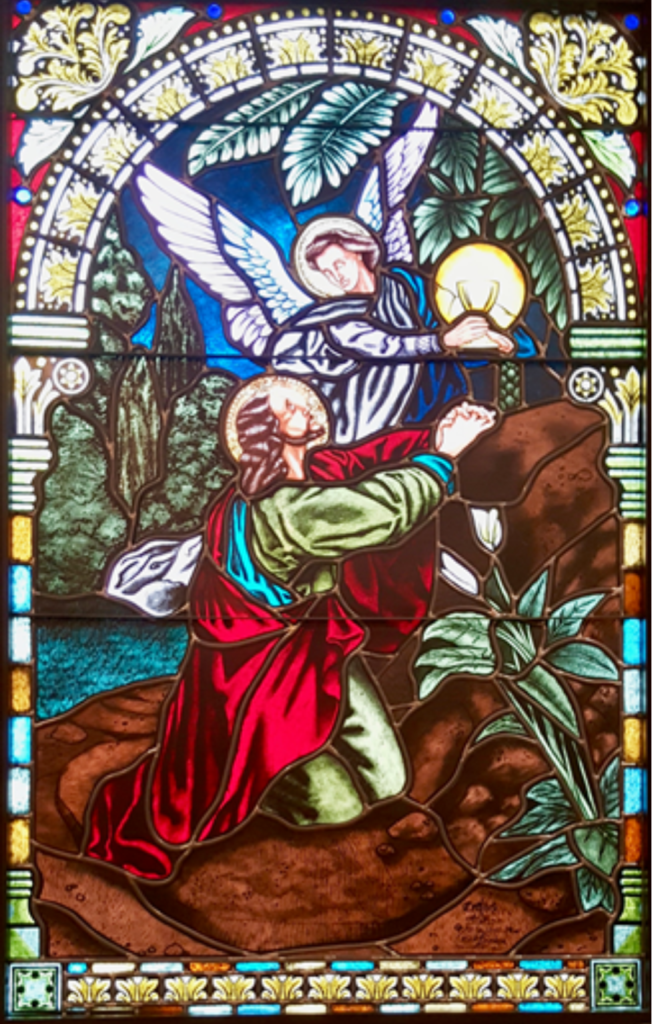Written by Dave Rempel
Sixteen stained glass windows adorn the sides of the worship space at Ascension. Inspiration for the windows was taken from the fact that in Europe long ago, the faithful would learn the Bible from stories depicted in windows. It was intended that Ascension’s windows could be similarly educational. What follows is a meditation on one of the 16 windows. Look for additional reflections in future editions of the Bulletin or on this Parish Blog.

The Agony in the Garden
Father if it is your will, take this cup from me; yet not my will but yours be done. (Luke 22:42)
Jesus is the only man depicted in this window—the omission of the disciples who accompanied Jesus to the Garden is a reminder that, in their slumber, they failed another test. We are shown the angel who appeared to Jesus to strengthen Him, in answer to His prayer to His Father. Jesus kneels, eyes up, humbled and subservient. His red garment suggests not only the blood that he sweat (so fervent was His prayer), but also His imminent bodily destruction, as He was soon to humble Himself on the cross in sacrifice.
Though Jesus requests a reprieve, He ultimately subjugates Himself to the Father’s will—this is His fiat, following the example of Mary’s similar submission depicted in the window to the far left. Why would Jesus need to pray? For the same reasons that we do and should—to ask God for help, but also to ask how we can serve God’s will.
In gazing upon this scene, one’s eye is inevitably drawn to the radiant cup. Because generally only people get halos in works of art, the fact that a halo graces this cup indicates the presence of Jesus Himself in the Eucharist. Previously that night, at the Last Supper, Jesus had instructed His followers to “take this cup,” the cup of His blood shed for all. Thus, the central object in this window symbolizes Jesus’s offering of Himself to His Father’s will and to us every day in Communion—an offering and opportunity that we should be loath to neglect.
